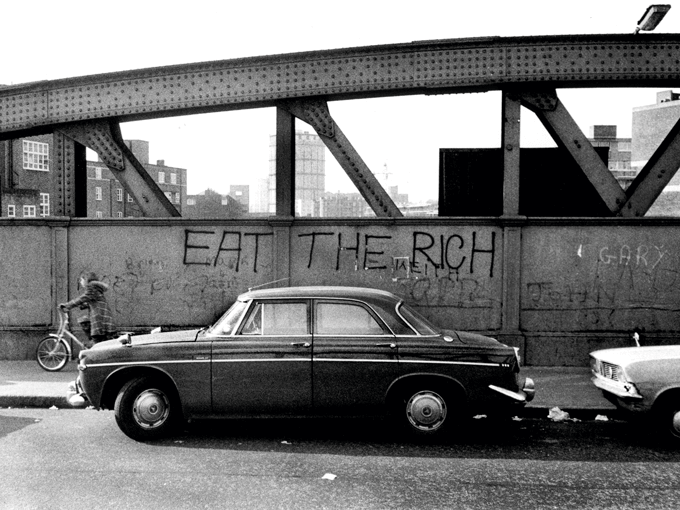May 13, 2019 Politics
Moves to ban so-called “hate speech” risk creating the same debacle for Jacinda Ardern as the Electoral Finance Bill did for Helen Clark, writes political commentator Matthew Hooton.
The contemporary Labour Party has a problem with free speech. We may think Helen Clark fell because of energy-efficient light bulbs but they were mere symbols of a government that had become too controlling. The real damage was from 2007’s Electoral Finance Bill.
Labour just couldn’t cope that seven Exclusive Brethren businessmen had dared publish pamphlets supporting Don Brash and opposing Clark. Worse, they had the audacity to let Brash know in advance.
The bill was written to stop people publishing similar pamphlets or other advertisements in election year. Even what was said through a megaphone on a protest was to be regulated.
The legislation was panned. When the Council of Trade Unions (CTU) pointed out it would prevent it from communicating with voters about employment law, Labour blithely told it not to worry because the intention was to stop bad guys like the Exclusive Brethren, not good guys like the unions.
Following the Christchurch terrorist attack, Jacinda Ardern’s leadership was exemplary in every respect. The immediate multiparty response on gun laws went some way to remove the stain that, despite Aramoana nearly 30 years ago, successive National and Labour governments had allowed New Zealand’s regulations to become more American than European. Despite the risk of losing focus on the actual victims and heroes, Ardern was surely right to say how proud she was of New Zealand for the collective response to the attack.
Ardern’s initial comments about social-media companies needing to take more responsibility for content were also spot on. But now proposals are emerging to criminalise so-called hate speech. Worse is what is being suggested on the fringes of the Labour Party and by the Greens. With serious talk of a crackdown on what words can be said in public, Ardern’s government risks repeating Clark’s mistakes.
This is not to say anything goes. The criminal law already bans speech that creates an immediate danger of violence. Your mob can chant, “Burn the rich!”, but you can’t tell it, “Let’s head to St Stephens Ave to burn down their houses now”. Thanks to legislation passed unanimously by Parliament 10 days before the terrorist attack, you can no longer go to jail for “blasphemous libel”. But you still can’t shout “fire” in a crowded theatre when there isn’t one.
For racist and other hateful speech, there are remedies focused mainly on reconciliation. Commissioners can have a chat with you, encourage you to think about what you said and perhaps meet those you have wronged. If you won’t cooperate, tougher measures can apply.
Defamation law provides other remedies for speech that damages your reputation, but you can’t sue anyone just because they hurt your feelings. If anything, our defamation law remains too strongly weighted in favour of the rich and powerful. Much that the local media has fairly good evidence for would run in the US, but not here. Advertising is also regulated.
Be clear that current talk goes well beyond this. It might become a new crime, for example, to utter phrases like “burn the rich”, “death to America”, “down with Islam” or “smash the unions”.
There are suggestions of regulating not just specific phrases but coded forms. That is, if anti-capitalist marchers replaced “Eat the rich” with “Dine in Parnell”, this would be criminalised, too, at least in that context. Presumably, some commissioner or the courts would be expected to keep ahead of the changing codes better than the Inland Revenue Department does keeping ahead of tax-avoidance schemes. This is all dangerous talk.
For all the horror of Christchurch, we should remember our wannabe neo-Nazis or Red Brigades have largely confined themselves to playing dress-up. The accused terrorist is an Australian, influenced by global subculture. As Ardern has recognised, no domestic regulation of speech will provide protection from foreigners or locals.
Moreover, aren’t we better to know who among us thinks this way? Isn’t it preferable those with violent tendencies feel free to say what they really think so that they may be identified and put under surveillance?
History is useful: 1930s British censors cut a full third from the English translation of Hitler’s Mein Kampf. Might the Nazi threat have been better appreciated if English speakers hadn’t been protected from the most vile third of his screed instead of being presented with a sanitised version?
Closer to home, we can only speculate how “hate speech” laws might have been misused by the establishment against those seeking progressive social change. Not everything the anti-apartheid movement said in the 70s and 80s about white South Africans and Springbok tour supporters was nice and polite.
Free speech has emerged as an ideal over centuries as a crucial component of a progressive and liberal society. A terrorist should not prompt us to curtail it. The criminal law should remain silent about the merely hateful. Far better that we honour the fallen in Christchurch by each of us resolving to combat hate speech ourselves. If hate speech is so powerful that we might consider criminalising it, then how much more powerful is our free speech to call it out on behalf of its targets whenever it occurs in our world?
This piece originally appeared in the May-June 2019 issue of Metro magazine.
Follow Metro on Twitter, Facebook, Instagram and sign up to our weekly email






